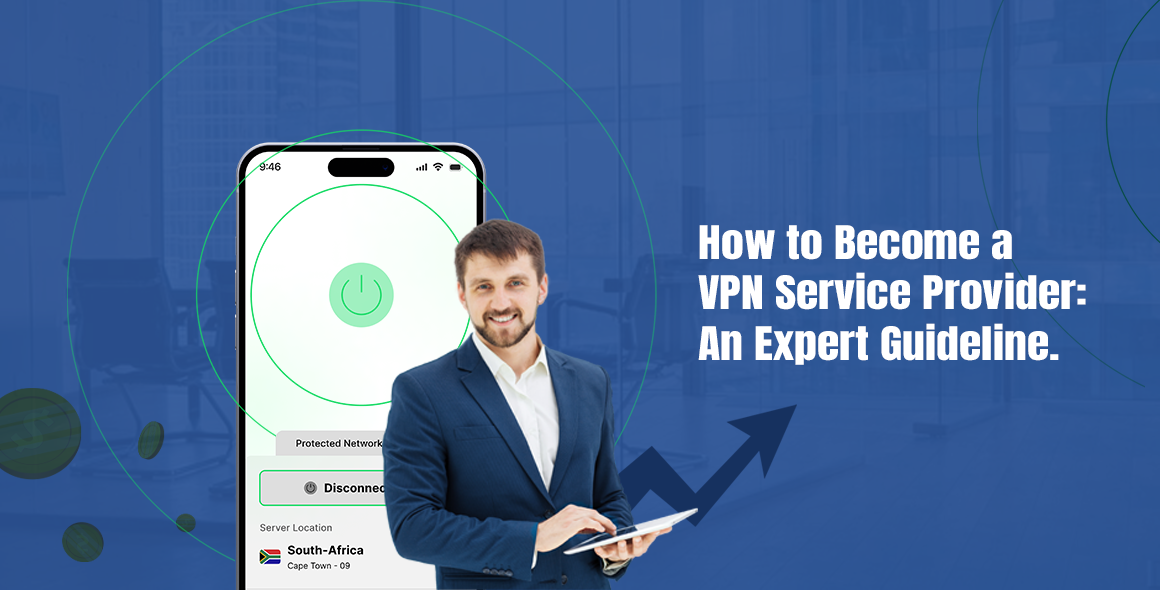
In today’s digital world, where privacy and security are critical concerns, VPNs (Virtual Private Networks) have become essential tools for businesses and individuals. The increasing demand for online security presents a lucrative opportunity for entrepreneurs to start a VPN service provider business. If you’re new to the field, this guide will walk you through the steps to become a successful VPN service provider, even if you have no prior experience in VPN development.
Before diving into the steps, it’s essential to understand why becoming a VPN service provider is a profitable venture. VPN usage is growing rapidly worldwide due to concerns over privacy, data protection, and unrestricted internet access. According to market research, the global VPN market is expected to reach over $75 billion by 2027. As more people seek secure and anonymous browsing, the demand for reliable VPN services is set to increase, making it a perfect time to start your own VPN business.
To become a VPN service provider, you don’t need to be a tech expert, but you should have a basic understanding of how VPNs work. A Virtual Private Network (VPN) enables individuals to establish a secure and encrypted link to an alternative network via the internet. It hides the user’s IP address and encrypts their online traffic, protecting their data from hackers, ISPs, and even government surveillance.
Some core features of a VPN include:
If you’re unfamiliar with VPN technologies, take time to study these basics. You can either learn through online resources or consult VPN development experts to help guide you in the right direction.
To become a VPN service provider, you must decide how you want to host and manage your service. There are two main approaches:
The VPN protocol defines how data is transmitted between the VPN server and the user’s device. Selecting the right protocol is critical to offering a reliable service. Some commonly used VPN protocols include:
You can offer multiple protocols to cater to different users’ needs or focus on a single protocol that best suits your target audience.
Server infrastructure is the foundation of every VPN service. Your servers will be responsible for handling user data, and their location will impact the speed and reliability of the VPN. To attract a global audience, you will need a distributed network of servers in various countries.
When selecting server locations, focus on areas where demand for VPN services is high, such as:
Additionally, consider server load and speed. The closer a user is to the VPN server, the faster their connection will be. Offering a variety of server locations will allow users to choose the best option for their needs.
For your VPN business to succeed, the user experience must be seamless. Most users are not tech-savvy, so your VPN app should be easy to use, even for beginners. It should include the following features:
If you don’t have experience in app development, hiring a VPN development company can help you create a professional and intuitive application that meets these requirements.
Security is the top concern for VPN users. To build trust and credibility as a VPN service provider, ensure that your service offers top-notch security. Implement strong encryption standards (like AES-256) and regularly update your protocols to protect users from emerging threats.
Additionally, you must comply with data privacy laws and regulations, such as the General Data Protection Regulation (GDPR) in Europe. Be transparent about your data collection practices and avoid logging user activities.
Once your VPN service is live, you’ll need a solid marketing plan to attract customers. Here are several strategies to begin your journey: SEO (Search Engine Optimization): Optimize your website content and blog posts using relevant keywords like “VPN service provider,” “VPN business,” and “start a VPN.”
A critical aspect of running a VPN business is providing reliable customer support. Your customers may face technical issues or have questions about how to use your service. Offering 24/7 support via live chat, email, or phone will set you apart from competitors and ensure customer satisfaction.
Starting a VPN service provider business may seem daunting, but with the right approach, it can be a highly profitable venture. By understanding VPN technology, choosing the right infrastructure, and providing an excellent user experience, you can establish yourself as a trusted VPN provider in a growing market. Following this expert guide will set you on the path to success in the VPN industry.Remember, if you need help with VPN development or app creation, professional VPN service providers like Kolpolok are available to assist you every step of the way.
Bangladesh Office (Headquarter)
Kolpolok Limited
H # 24/1, Level # 7, Shyamoli Cinema Hall Building, Mirpur Road, Shyamoli
Dhaka – 1207, Bangladesh
USA Office
2807 N Parham Rd, STE 320 #2002
Henrico, VA 23294
+18045920996
UAE Office
Business Center, 12-055 Spectrum Building
Oud Metha Dubai, UAE
South Africa Office
60 Calendula Drive, Malabar 6020
Port Elizabeth, South Africa
QUICK CONTACT
Tel: +880 2-58153018 (During the office hour)
Mobile: +880 1712-901764 (WhatsApp)
Support: 24x7
Email: [email protected]
BUSINESS HOURS
Mon - Fri: 9:30 AM to 6:30PM
@ 2023 Copyright - Kolpolok Limited